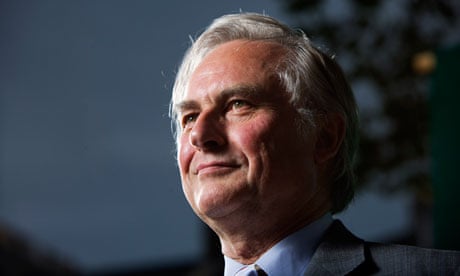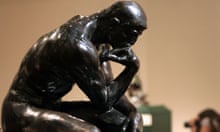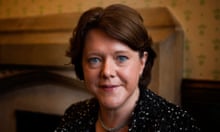When Prospect magazine listed Britain's leading public intellectuals in 2004 and invited readers' votes, it was Richard Dawkins who emerged as No 1. Nine years on, the biologist, author and campaigner has bettered that by topping its "world thinkers" rankings, beating four Nobel prize winners (and another contender regarded as certain to receive one soon) in a poll based on 65 names chosen by a largely US- and UK-based expert panel.
Joining him in the top 10 are the psychologists Steven Pinker (3) and Daniel Kahneman (10), the economists Paul Krugman (5) and Amartya Sen (7) and the philosopher Slavoj Žižek (6), who all, like him, figured in the magazine's first list of world-class thinkers in 2005.
A late run by the octogenarian British physicist Peter Higgs (8) secured him a place in an elite squad containing three other scientists, while the remaining slots are taken by academics turned politicians from the Middle East: Afghanistan's Ashraf Ghani (2), an economist who served as finance minister after the US-led invasion; Iraq's Ali Allawi (4), another ex-minister and author of The Occupation of Iraq and The Crisis of Islamic Civilization; and Egypt's Mohamed ElBaradei (9), prominent in the Arab Spring and now in opposition to Mohamed Morsi.
To qualify for this year's world thinkers rankings, it was not enough to have written a seminal book, inspired an intellectual movement or won a Nobel prize several years ago (hence the absence from the 65-strong long list of ageing titans such as Noam Chomsky or Edward O Wilson); the selectors' remit ruthlessly insisted on "influence over the past 12 months" and "significance to the year's biggest questions".
This requirement may have been a factor in the top 10 being all-male (presumably a source of frustration to the five women on the selection panel, including Prospect's editor Bronwen Maddox), with longlistees such as Hilary Mantel, Martha Nussbaum and Sheryl Sandberg not making it through to the elite of the elite, and the likes of Germaine Greer and Naomi Klein not even making it into the 65. But it may also, of course, simply reflect the gender make-up of the monthly's readership.
Political engagement was clearly enough for the Middle Eastern trio to meet the criterion of current influence, and others among the cerebral galacticos have been in the news too. The Higgs boson was identified at Cern in July and confirmed there last month, making him an odds-on favourite for a Nobel. Kahneman's Thinking, Fast and Slow became a worldwide bestseller last year. Krugman, a New York Times columnist as well as a Princeton don, has been the leading critic of "the austerity delusion". Pinker might well have made the chart anyway, but probably owes his high position to his switch from his specialist field of psycholinguistics to history in The Better Angels of Our Nature.
As for Dawkins, the continuation of wars of religion and terrorist atrocities informed by it means his atheist crusade remains relevant to the year's biggest questions, despite the end of the Bible-bashing, war-mongering Bush era in which he first raised his banner – this week his 670,000 Twitter followers could find him (between musings about socks) rejoicing in France's legalisation of gay marriage, ridiculing a journalist's Muslim beliefs, and retweeting a story that the older Boston bomber "was angry that the world pictured Islam as a violent religion". On Monday, no doubt manfully resisting efforts to deify or idolise him, the world No 1 will attend the premiere in Toronto of a documentary about his roadshow (with Lawrence Krauss) promoting science and reason.







Comments (…)
Sign in or create your Guardian account to join the discussion